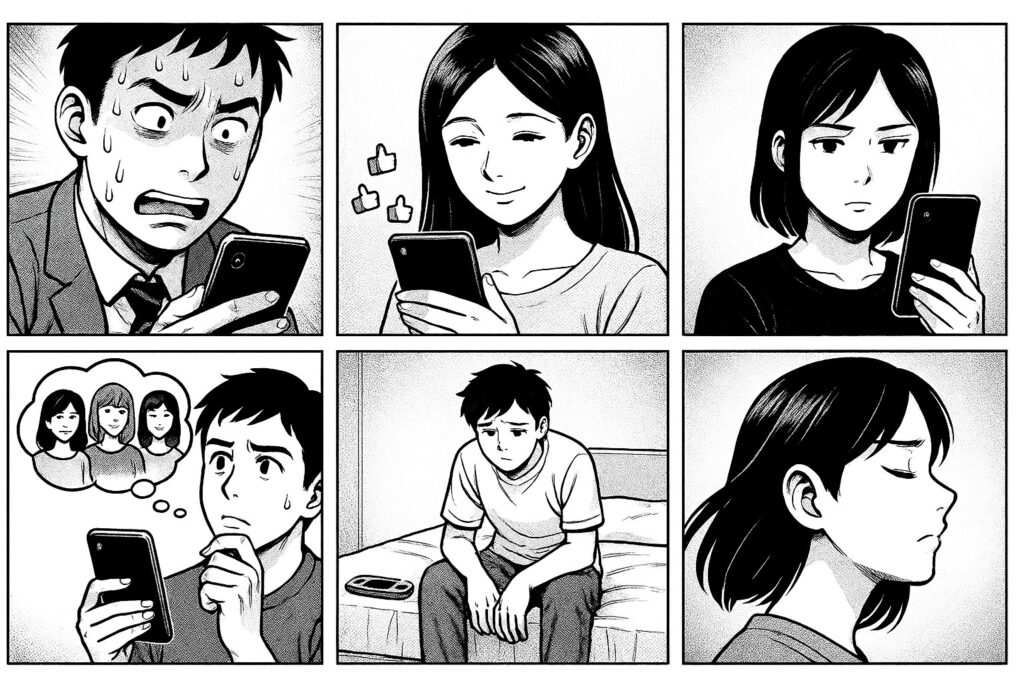Modern dating didn’t invent cowardice — it just made it incredibly convenient.
Apps promised efficiency. They delivered avoidance. What used to require courage — approaching someone, showing interest, ending things with clarity — has now been flattened into gestures so small they barely register. Swipe right. Unmatch. Vanish.
It’s not that people suddenly became worse. It’s that the structure quietly rewards the worst parts of us.
distance
Dating apps are built on low stakes and low accountability. You’re not meeting a person — you’re interacting with a profile. You’re curating your own. You’re swiping while bored, chatting while distracted, keeping options open not because you’re malicious, but because that’s exactly how these systems are designed to work. Connection feels light. Disconnection feels even lighter.
No context. No consequence. No cost.

silence
Ghosting thrives here for a reason. Saying “I’m not feeling it” takes effort. It takes exposure. It takes the tiniest risk of confrontation, rejection, or discomfort. Silence, by contrast, is frictionless. Disappearing costs nothing. So people convince themselves that saying nothing is somehow kinder than saying no.
“I didn’t want to hurt them,” they say. But often, that’s not empathy talking — it’s fear. Fear of guilt, fear of awkwardness, fear of the smallest emotional mess. Ghosting lets people avoid not only others’ feelings but their own.
deferral
And so modern dating rewards indecision. It rewards deferral. It rewards those who leave things vague — who avoid naming what they want, avoid ending what they don’t, and avoid clarity until there’s absolutely no choice left. Why close one door cleanly when you can leave five half-open, just in case?
What emerges is a culture of lukewarm connection. Not warm enough to feel real. Not cold enough to be over. Just enough to stay floating — an endless holding pattern of “let’s see where this goes” that rarely goes anywhere.
isolation
In another era, this might have been limited by social cost. Maybe your friends knew their friends. Maybe you risked running into each other again. Maybe treating someone poorly would echo back to you. But apps removed all that. Now, most connections exist in a vacuum — isolated, sealed off, disposable. The incentive to behave well isn’t gone entirely — but it’s quieter, less urgent, easier to ignore.
evasion
What’s left is a dating world optimized for the emotionally risk-averse. Vagueness is safer than honesty. Ambiguity is easier than rejection. Playing it cool is easier than being real. And courage — the simple, rare act of saying what you mean — starts to feel like a liability instead of a virtue.
Modern dating didn’t kill courage. It just made sure nobody needs it to get by.
But that’s the thing about courage. It’s never efficient. It’s never convenient. It’s never easy.
It’s just necessary — if you want something real.